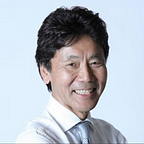“Friendly Parent Rule” to protect children’s rights
Sole custody and joint custody
There is no domestic law in Japan that stipulates joint custody. If the child is a minor, the parents jointly exercise parental authority during the marriage, but after divorce, the concept of sole custody kicks in. Almost everyone agrees that both parents should be properly involved in child-rearing even after the divorce, but according to the research office of the House of Councilors’, the visit exchange and the payment of child support are low in Japan. Though single custody is easier to make decisions about child-rearing, parents who have lost parental authority are less likely to be involved, and there are many cases where interaction with children is totally cut off. According to the Ministry of Health, Labour, and Welfare documents, about 3.8 million children’s parents are divorced between 1995 and 2009 in Japan, of which only 28 percent were able to see their parents. This means that on average, 180,000 children per year will not be able to see either their father or mother at all. Some parents may have problems such as DV and the children may not want to see their parents, but on the other hand, the majority of the children with divorced parents have no way to see one of the parents.
In February 2019, the United Nations Committee on the Rights of children, in its 4th and 5th government reports on Japan, stated “In order to allow the joint care of children, … ensure children’s rights to maintain human relations and direct contact with parents without custody are exercised on a regular basis.” In response, the Japanese government said it takes the recommendations seriously. But during the discussions in the Budget Committee of the House of Representatives on February 25, 2019, Foreign Minister Taro Kono stated, that “This Convention on the Rights of the Child is only a provision of the Contracting Parties to make the best efforts to ensure the recognition of the principle that parents have joint responsibility for the care and development of children, and there is no clear provision for the introduction of a joint custody system after divorce.”
On the other hand, with the increase in international marriages, in case of one parent takes a child out of the country without the permission of the other parent, the Hague Convention stipulates that the child under the age of 16 be returned to the original country of residence to continue supporting for parent-child visits. 101 countries including Japan, are the state party to this convention. In July 2020, the European Parliament adopted a resolution calling for the Japanese government to come up with measures to ban the taking of children (parental abduction), and the development of laws allowing joint custody. Saying that there have been a number of cases in which Japanese parent unilaterally takes their children away between a person of a member state. In response, the Minister of Justice in Japan said that the problem of the custody system after divorce is complicated, but the child’s interest is given the highest priority, and the consideration is advanced while listening to various opinions.
Domestic law alone doesn’t protect Children’s rights
There are many on-going problematic cases of child custody in international marriage, but one recent case clearly shows the double standard of the Japanese judicial system. On September14, 2020, the preservation disposition was ordered by the Tokyo Family Court, for the wife to have custody of the daughter, and the daughter who now lives with the father to be handed over to the wife. In international civil cases, if the defendant resides in Japan, the court in the country will have jurisdiction, so the hand-over of the daughter will be carried out based on this judgment. If the husband refuses to hand over, there is also a means of personal protection claim to enforce the court decision, that there is a high possibility that the hand-over will be carried out anyway. However, in similar cases, when a Japanese wife took a child from a foreign country into the country, enforcement action is not at all carried-out to return the child to the country of origin which is stipulated under the Hague Convention.
In cases of international marriage, children with divorced parents’ are separated from half of their roots, such as the culture, language, grandparents, etc. The UN Committee on the Rights of children, the Hague Convention, and the European Parliament resolutions, all suggest Japan taking this problem seriously. In November 2019, the Family Law Study Group started making research on whether or not to introduce a joint custody system after divorce. In February 2018, a non-partisan Parliamentary study group of Child Rearing approved a draft law that could be a step forward toward joint custody. According to a Ministry of Justice survey subjecting 23 countries, including G-20 countries, reported that the majority of them are somehow allowing joint custody after divorce, and Japan’s case, along with India and Turkey, only permitting sole custody after divorce is exceptional.
Friendly Parent Rule
There is a good chance to protect children of divorced international marriage without waiting for legal developments in relation with joint custody. The Japanese justice system could recognize the “Friendly Parent Rule” which is generally accepted in the U.S., Canada, and many other countries. The basic rules are: (1) Cooperate in the visit exchange between the separated parent and the child, (2) Communicate positively of the separated parent, (3) Encourage the child to interact with the separated parent even if the child is reluctant to visit.
Respecting these rules protects children to see both parents after divorce, and should influence court decision to choose parental eligibility for custody. If these principles are widely recognized, continuous and good exchange with parents after the divorce will be easier. Recognizing Friendly Parent Rules by many of the Japanese citizens could influence the current judicial decisions which sadly resulting to encourage parental child abduction in Japan.
